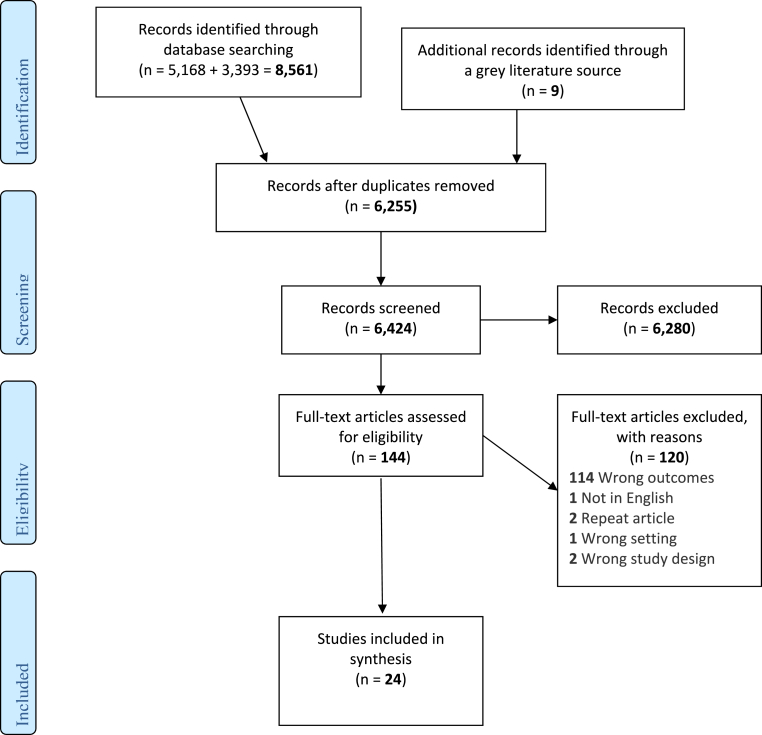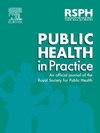Creating a family health history interview protocol for use with undergraduate health professional students: A scoping review
IF 1.9
Q2 PUBLIC, ENVIRONMENTAL & OCCUPATIONAL HEALTH
引用次数: 0
Abstract
Background
Family health history can be used as a health promotion tool to assess health risk, improve data collection and disease prevention, initiate interventions, and motivate behavioral change, but its utility as a public health tool has not been fully explored. Collecting information for a family health history can be a challenging task. However, it is an important skill for undergraduate students to learn, particularly those in pre-health majors. Our aim was to create a family interview protocol for students' successful family health history collection using findings from students' research papers and a scoping review.
Study design
We summarized and listed suggestions from students' papers. Our scoping review followed Arksey and O’Malley’s (2005) review process and the PRISMA Extension for Scoping Review checklist (2018).
Methods
We used Medline, CINAHL (EBSCO), ERIC (ProQuest), Web of Science, and Academic Search Premiere databases and Google. Using Covidence, we included peer-reviewed, English, journal articles and grey literature, narrowing our key term combinations to terms like family health history, interview or protocol, and undergraduate or health professional student.
Results
Protocol suggestions included having appropriate settings and preparation to conduct interviews with questions on socio-demographics, cultural and family relationship dynamics, health behaviors, and acute and chronic condition questions for family members. Students' papers addressed preparation for conducting interviews and obtaining better data from existing family trees and extended relatives to maximize learning about risk assessment. The scoping review revealed two themes associated with family health history, including creating genograms and interview methods used with history taking.
Conclusions
Implementing the protocol for future assignments will provide students with a training opportunity to identify their own disease risks, improve their family health history knowledge, and collect family health history data relevant to prevention and interventions focused on understanding chronic conditions and their management.

创建用于卫生专业本科生的家庭健康史访谈协议:范围审查。
背景:家族史可作为健康促进工具,用于评估健康风险、改善数据收集和疾病预防、启动干预措施和激励行为改变,但其作为公共卫生工具的效用尚未得到充分探索。收集家族健康史信息可能是一项具有挑战性的任务。然而,这对本科生来说是一项重要的技能,尤其是那些健康预科专业的学生。我们的目的是利用学生研究论文的发现和范围审查,为学生成功的家庭健康史收集创建一个家庭访谈协议。研究设计:我们从学生的论文中总结并列出建议。我们的范围审查遵循Arksey和O'Malley(2005)的审查流程和PRISMA范围审查扩展清单(2018)。方法:采用Medline、CINAHL (EBSCO)、ERIC (ProQuest)、Web of Science、Academic Search Premiere数据库和谷歌。使用covid - ence,我们纳入了同行评议的英文期刊文章和灰色文献,将关键术语组合缩小到家庭健康史、访谈或协议、本科或卫生专业学生等术语。结果:方案建议包括设置适当的环境,并准备对家庭成员进行关于社会人口统计学、文化和家庭关系动态、健康行为和急慢性疾病问题的访谈。学生们的论文讨论了进行访谈的准备工作,并从现有的家谱和扩展亲属中获得更好的数据,以最大限度地了解风险评估。范围审查揭示了与家族健康史相关的两个主题,包括创建谱系图和与病史采集一起使用的访谈方法。结论:在未来的作业中实施该方案将为学生提供一个培训机会,以识别自身的疾病风险,提高他们的家族健康史知识,并收集与预防和干预有关的家族健康史数据,重点是了解慢性病及其管理。
本文章由计算机程序翻译,如有差异,请以英文原文为准。
求助全文
约1分钟内获得全文
求助全文

 求助内容:
求助内容: 应助结果提醒方式:
应助结果提醒方式:


